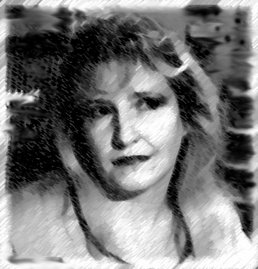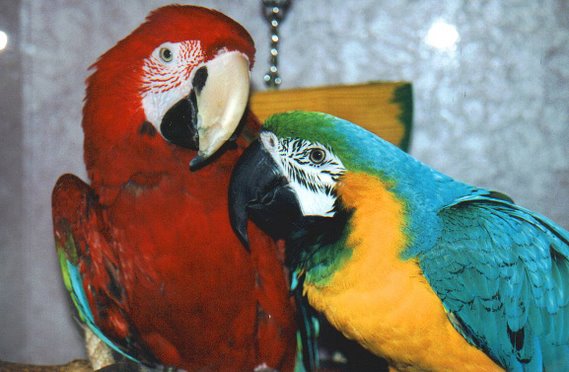
From Wikipedia, the free encyclopedia
(Redirected from April Fool's Day)
Jump to: navigation, search
For other uses, see April Fool's Day (disambiguation).
April Fools' Day or All Fools' Day, though not a holiday in its own right, is a notable day celebrated in many countries on April 1. The day is marked by the commission of hoaxes and other practical jokes of varying sophistication on friends, enemies and neighbours, or sending them on fools' errands, the aim of which is to embarrass the gullible. In some countries, April Fools' jokes (also called "April Fools") are only made before noon on 1 April.[1] It is also widely celebrated on the Internet.
Contents [hide]
1 Origin
2 Hoaxes
2.1 Lirpa Loof
3 Well-known hoaxes
3.1 By radio stations
3.2 By television stations
3.3 By magazines and newspapers
3.4 By game shows
3.5 By websites
4 Lists of April Fool hoaxes
5 Side-effects of April Fools' Day
6 Other prank days in the world
7 Quotes about April Fools' Day
8 Trivia
9 See also
10 References
11 Notes
12 External links
[edit] Origin
The origin of this custom has been very much disputed. Many theories have been suggested. What seems certain is that it is in some way or other a relic of those once universal festivities held at the vernal equinox, which, beginning on old New Year's Day, the 25th of March, ended on the 2nd of April.
Chaucer's story, the Nun's Priest's Tale, written c.1400, takes place "thritty dayes and two" from the beginning of March, that is, 1 April; it is Chanticleer and the Fox, a story of two fools. Though the 1st of April appears to have been observed in Great Britain in antiquity as a general festival, it was apparently not until the beginning of the 18th century that the making of April-fools was a common custom. In Scotland the custom was known as "hunting the gowk," i.e. the cuckoo, and April-fools were "April-gowks," the cuckoo being there, as it is in many countries, a term of contempt.
It has been suggested that Europe derived its April-fooling from the French.[2] French and Dutch references from 1508 and 1539 respectively describe April Fools' Day jokes and the custom of making them on the first of April. France was one of the first nations to make January 1 officially New Year's Day (which was already celebrated by many), by decree of Charles IX. This was in 1564, even before the 1582 adoption of the Gregorian calendar (See Julian start of the year). Thus the New Year's gifts and visits of felicitation which had been the feature of the 1st of April became associated with the first day of January, and those who disliked or did not hear about the change were fair game for those wits who amused themselves by sending mock presents and paying calls of pretended ceremony on the 1st of April. In France the person fooled is known as poisson d'avril. This has been explained as arising from the fact that in April the sun quits the zodiacal sign of the fish. The French traditionally celebrated this holiday by placing dead fish on the backs of friends. Today the fish has been replaced with paper cut-out.
The Dutch celebrate the 1st of April for other reasons. In 1572, the Netherlands were ruled by Spain's King Philip II. Roaming the region were Dutch rebels who called themselves Geuzen, after the French "gueux", meaning beggars. On 1 April 1572, the Geuzen seized the small coastal town of Den Briel. This event was also the start of the general civil rising against the Spanish in other cities in the Netherlands. The Duke of Alba, commander of the Spanish army could not prevent the uprising. Bril is the Dutch word for glasses, so on 1 April, 1572, "Alba lost his glasses". Dutch people find this joke so hilarious they still commemorate the first of April.
[edit]
(Redirected from April Fool's Day)
Jump to: navigation, search
For other uses, see April Fool's Day (disambiguation).
April Fools' Day or All Fools' Day, though not a holiday in its own right, is a notable day celebrated in many countries on April 1. The day is marked by the commission of hoaxes and other practical jokes of varying sophistication on friends, enemies and neighbours, or sending them on fools' errands, the aim of which is to embarrass the gullible. In some countries, April Fools' jokes (also called "April Fools") are only made before noon on 1 April.[1] It is also widely celebrated on the Internet.
Contents [hide]
1 Origin
2 Hoaxes
2.1 Lirpa Loof
3 Well-known hoaxes
3.1 By radio stations
3.2 By television stations
3.3 By magazines and newspapers
3.4 By game shows
3.5 By websites
4 Lists of April Fool hoaxes
5 Side-effects of April Fools' Day
6 Other prank days in the world
7 Quotes about April Fools' Day
8 Trivia
9 See also
10 References
11 Notes
12 External links
[edit] Origin
The origin of this custom has been very much disputed. Many theories have been suggested. What seems certain is that it is in some way or other a relic of those once universal festivities held at the vernal equinox, which, beginning on old New Year's Day, the 25th of March, ended on the 2nd of April.
Chaucer's story, the Nun's Priest's Tale, written c.1400, takes place "thritty dayes and two" from the beginning of March, that is, 1 April; it is Chanticleer and the Fox, a story of two fools. Though the 1st of April appears to have been observed in Great Britain in antiquity as a general festival, it was apparently not until the beginning of the 18th century that the making of April-fools was a common custom. In Scotland the custom was known as "hunting the gowk," i.e. the cuckoo, and April-fools were "April-gowks," the cuckoo being there, as it is in many countries, a term of contempt.
It has been suggested that Europe derived its April-fooling from the French.[2] French and Dutch references from 1508 and 1539 respectively describe April Fools' Day jokes and the custom of making them on the first of April. France was one of the first nations to make January 1 officially New Year's Day (which was already celebrated by many), by decree of Charles IX. This was in 1564, even before the 1582 adoption of the Gregorian calendar (See Julian start of the year). Thus the New Year's gifts and visits of felicitation which had been the feature of the 1st of April became associated with the first day of January, and those who disliked or did not hear about the change were fair game for those wits who amused themselves by sending mock presents and paying calls of pretended ceremony on the 1st of April. In France the person fooled is known as poisson d'avril. This has been explained as arising from the fact that in April the sun quits the zodiacal sign of the fish. The French traditionally celebrated this holiday by placing dead fish on the backs of friends. Today the fish has been replaced with paper cut-out.
The Dutch celebrate the 1st of April for other reasons. In 1572, the Netherlands were ruled by Spain's King Philip II. Roaming the region were Dutch rebels who called themselves Geuzen, after the French "gueux", meaning beggars. On 1 April 1572, the Geuzen seized the small coastal town of Den Briel. This event was also the start of the general civil rising against the Spanish in other cities in the Netherlands. The Duke of Alba, commander of the Spanish army could not prevent the uprising. Bril is the Dutch word for glasses, so on 1 April, 1572, "Alba lost his glasses". Dutch people find this joke so hilarious they still commemorate the first of April.
[edit]
And if you want to know tons more info on April Fools Day here's the link: http://en.wikipedia.org/wiki/April_Fool's_Day






No comments:
Post a Comment